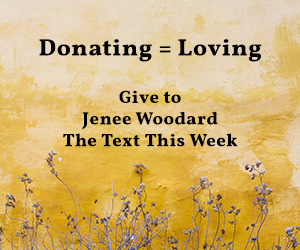Natural Born Killers (1994)
- Information at Internet
Movie Database
- Roger
Ebert Review, Chicago Sun-Times
- Themes
- Alternate Reality
- The "psychic landscape" of the characters
as well as of our violent culture is often seen in the background.
- Angels
- Owen the "guardian angel" appears reading
a paper in the diner at the beginning of the film, and reappears to
help Mickey and Mallory escape. In the alternate ending to the film,
he also kills Mickey and Mallory.
- Apocalyptic
- Prison riot as apocalyptic destruction of evil.
Mickey and Mallory leave there, make their final sacrifice, and end
the violent cycles of their own upbringing and societal influences.
(For a kind of 60's hippy utopia!)
- Clean/Unclean
- While decrying violence as negative, the media
feeds the public fascination for it because it sells. Violence is
rhetorically "unclean", but is invisible and/or encouraged
through societal systems.
- Cleansing the Temple
- The prison riot - the prison "temple"
(society's place of sacrifice for their own safety) is exposed for
what it has become. Prisoners riot and put the head of the warden on
a pole in a sort of ultimate sacrifice.
- Confession
- Mickey's understanding of his life through the
shaman's ritual.
- Conversion
- Ironically, it is Mickey and Mallory Knox who break
through the cycles of violence and stop killing. They go on to live
in the underground without perpetuating the violence in our society.
- Crucifixion
- Wayne Gale is killed in a crucifix (or Buddhist
monk's!) position. He is the representation of the media which
caters to the public fascination of violence, which must be
sacrificed before the cycle of violence can end.
- Demons
- The demonic is highlighted through the use of the
color green and through demonic images. While Mickey and Mallory are
the culturally revered "demons," other demons are exposed
as well. Ambiguity of demon figures - color green, entwined snakes -
throughout the film.
- Difficulty Discerning Evil
- While Mickey and Mallory are understood as evil,
they are also revered as heroes. "If I were a mass-murderer,
I'd be Mickey and Mallory Knox." Institutional evil - including
the evil involved in promoting killers as heroes - is not
recognized. (Mallory's family situation is washed over by bright
colors and accompanied by a laugh track. The warden and Jack
Scagnetti are seen as positive figures, writing books and
"keeping order." The media presents itself as an unbiased
observer when actually it encourages the glorification of evil and
violence.)
- Exodus
- Owen as the Moses figure who leads them out through
the bowels of the prison. (Sewage dripping on them from the pipes
above.)
- Fate
- Major theme for Mickey and Mallory. They meet
because of fate. Mickey kills because he understands himself as the
amoral messenger of fate.
- Father Types
- Rodney Dangerfield as the perverse father who
perpetuates abuse and violence through his treatment of his family,
all accompanied (and hidden) by "50's family" sitcom
laughter and music.
- Healing
- The shaman and the snakes in the desert are what
"heal" Mickey and Mallory and start them on the path
toward learning how not to perpetuate cycles of violence. Entwined
snakes theme throughout film.
- Institutional Evil
- Prison system, abusive family cycles, media
glorification of violence, environmental violence are all described
as contributing to the level of violence in our society.
- Interconnectedness
- Mickey's words at the "wedding" as they
bleed together: "We'll be living in all the oceans now."
The violent cycles begun through their genes and their environment
also continues through them.
- Journey/Wilderness
- The shaman and the snakes in the desert are what
"heal" Mickey and Mallory and start them on the path
toward learning how not to perpetuate cycles of violence.
- Judgment
- Mickey and Mallory always leave one person behind
"to tell the tale." Scene in diner where they (as the
amoral messengers of fate) choose which one not to kill - Mallory
cheats because she doesn't like the waitress. (Lots of folks'
concept of God is not too different from this!)
- Prayer
- Mickey Knox: Mister rabbit says, "A moment of
realization is worth a thousand prayers."
- Prophet
- Mickey Knox as the prophet who understands evil at
its core, and yet does not understand his own moral responsibility
within it. (Prison interview.)
- Sacrifice
- Wayne Gale is killed in a crucifix (or Buddhist
monk's!) position. He is the representation of the media which
caters to the public fascination of violence, which must be
sacrificed before the cycle of violence can end.
- Seductive Power of Evil
- Mickey and Mallory are glorified as heroes,
mirroring our culture's continuing glorification of violence.
Because there is no war to turn the violence out on
"them," it is turned in on "us," but it is still
glorified. Killers become "stars".
- Temptation/Testing
- The testing in the wilderness (complete with
snakes!) where Mickey understands his life and who he is.
Index
of Movie Titles
Index
of Movie Themes


